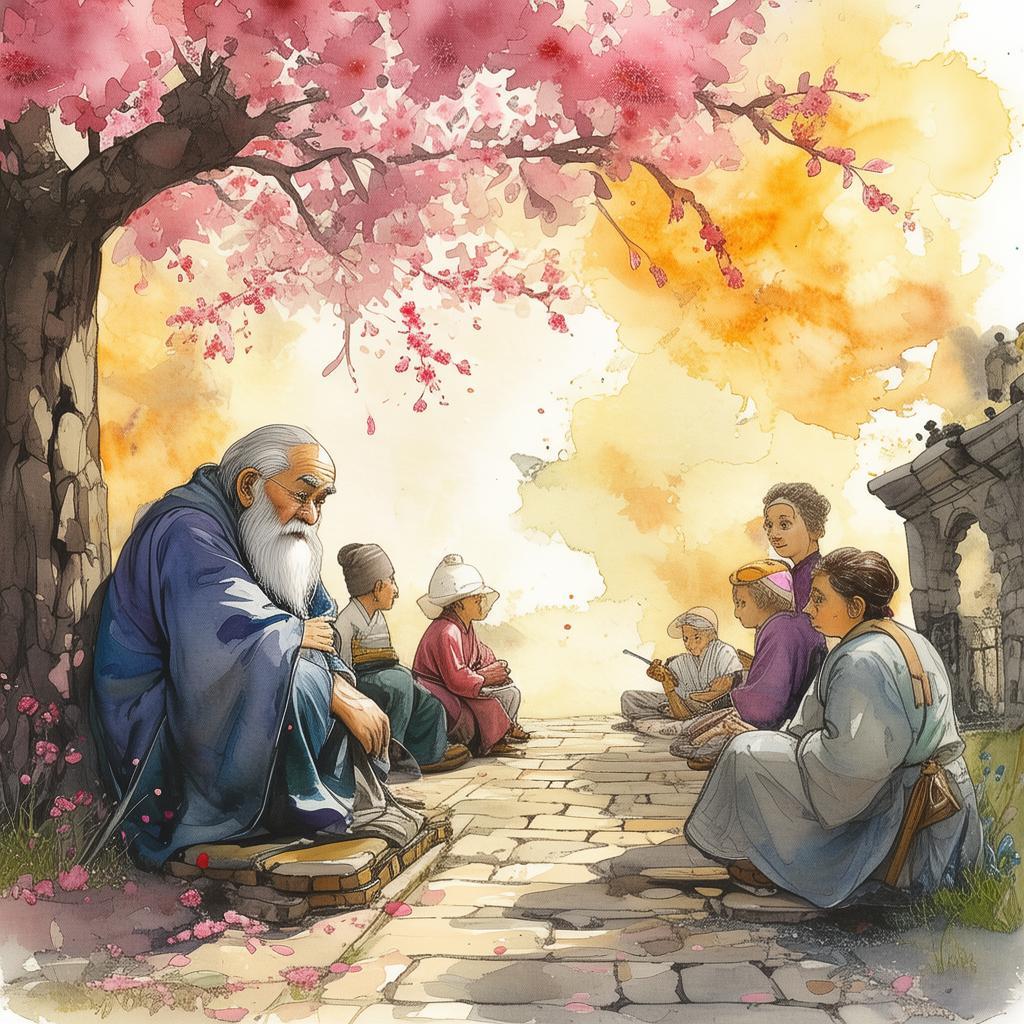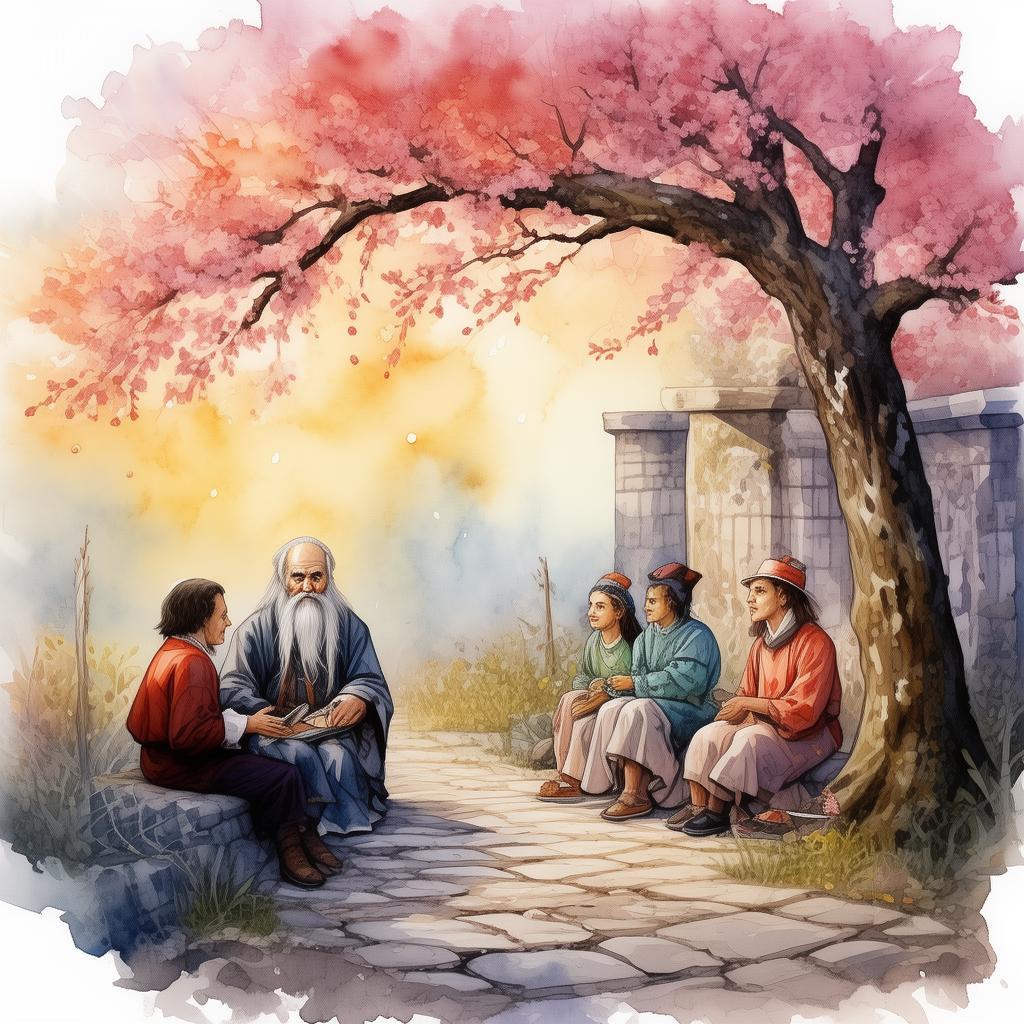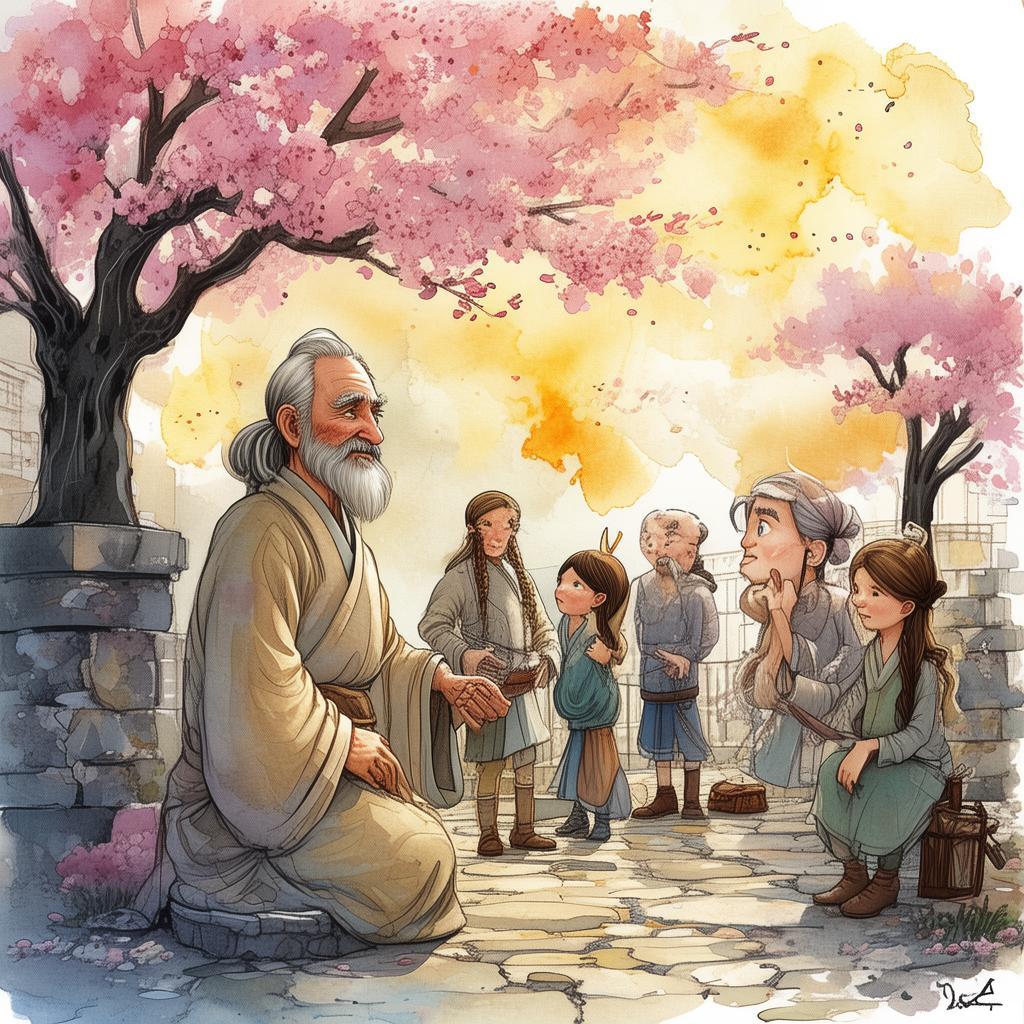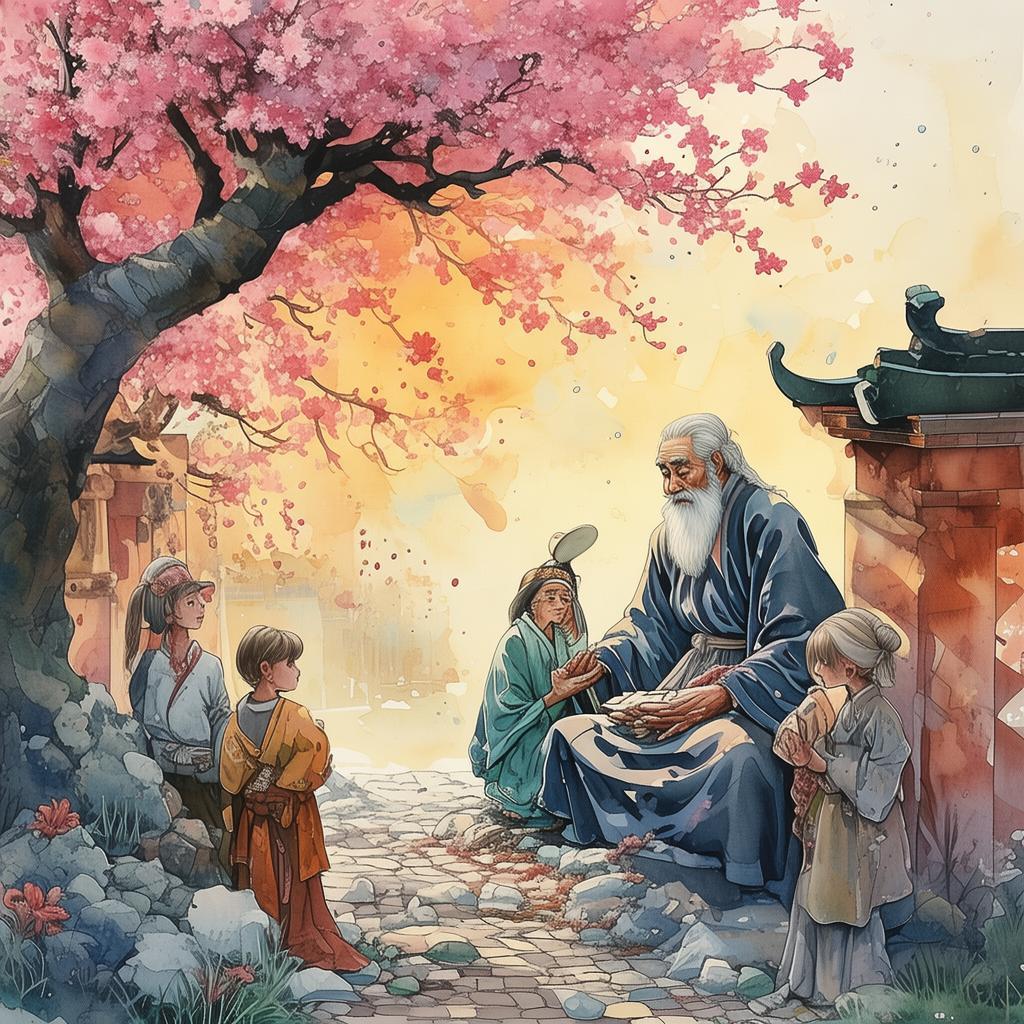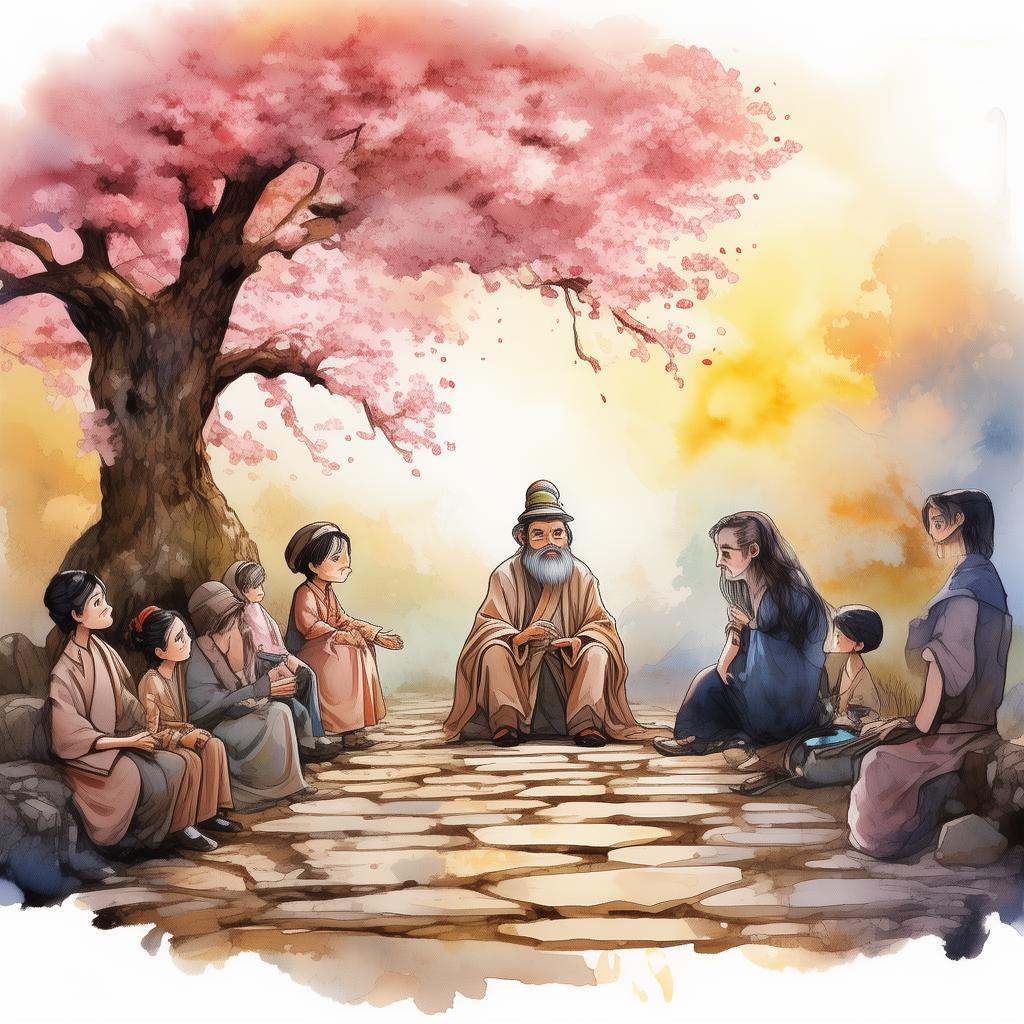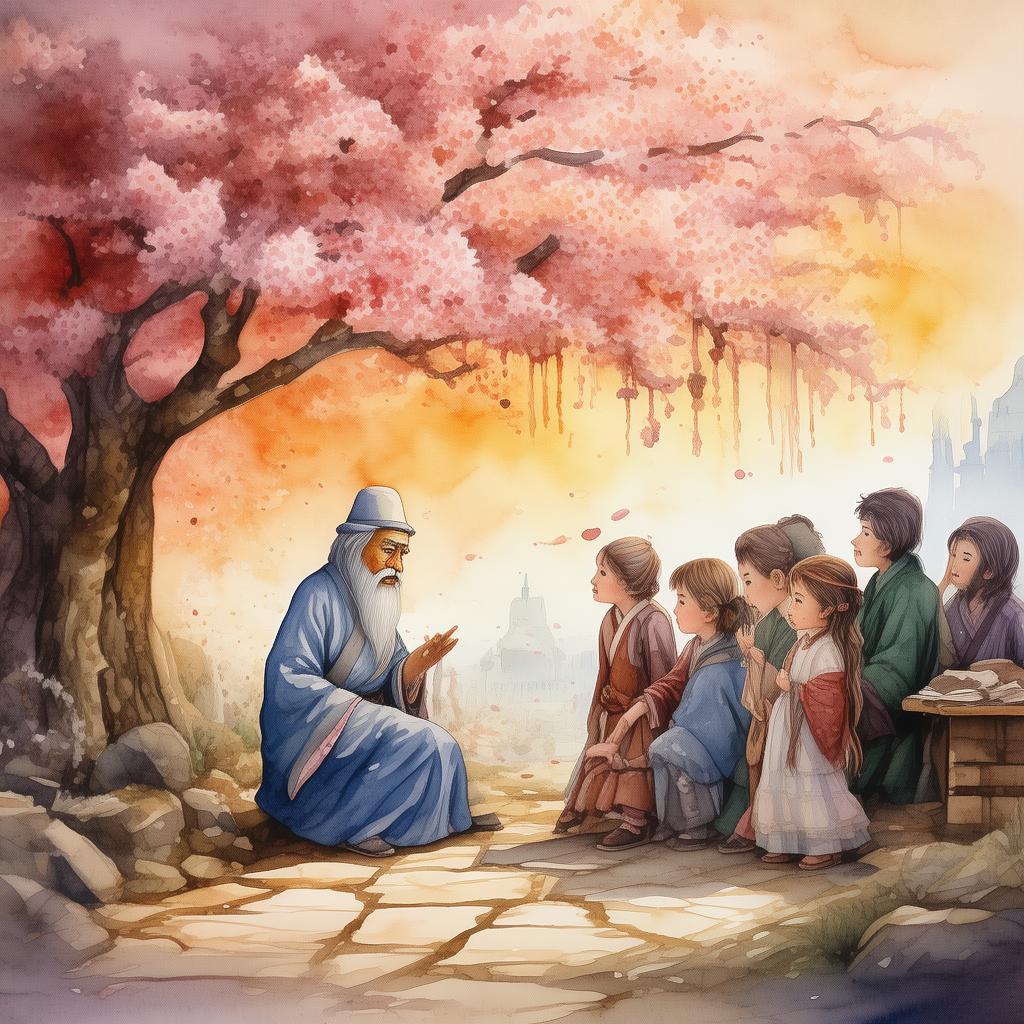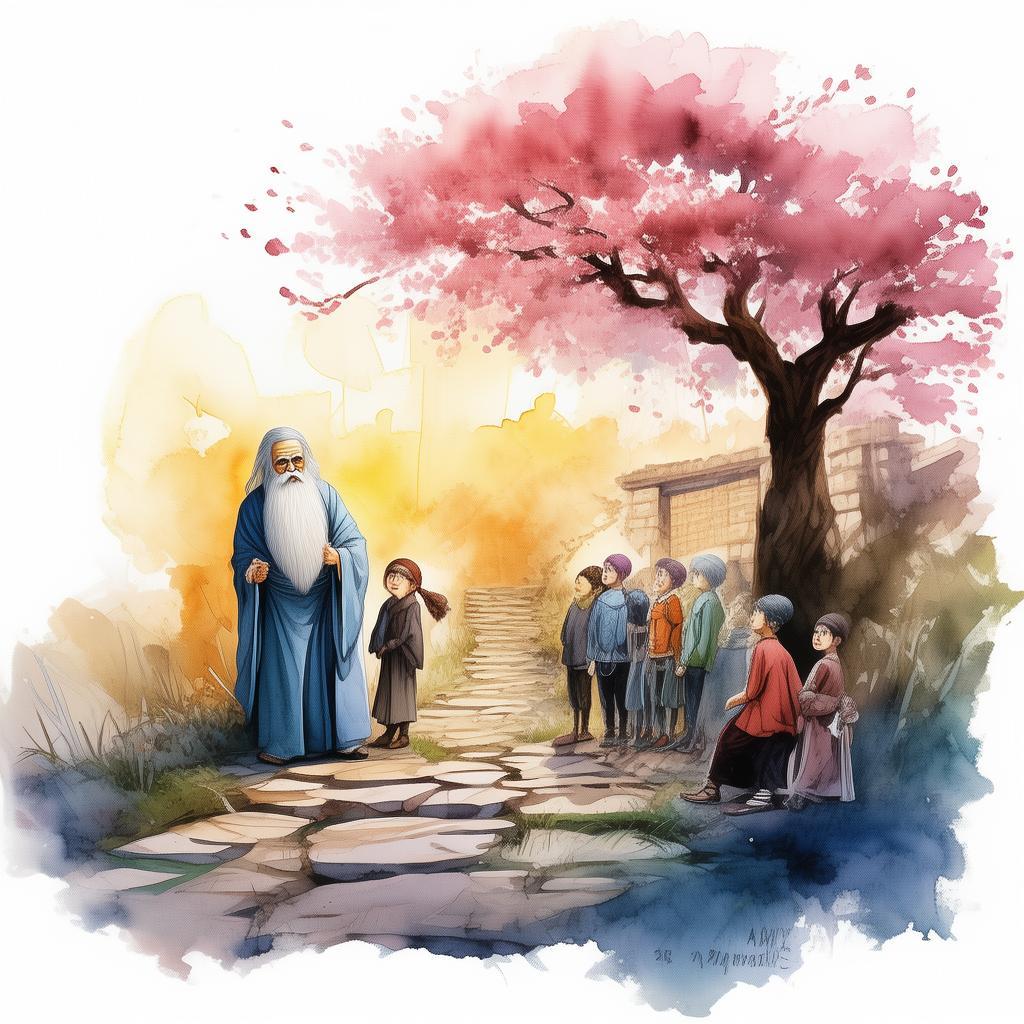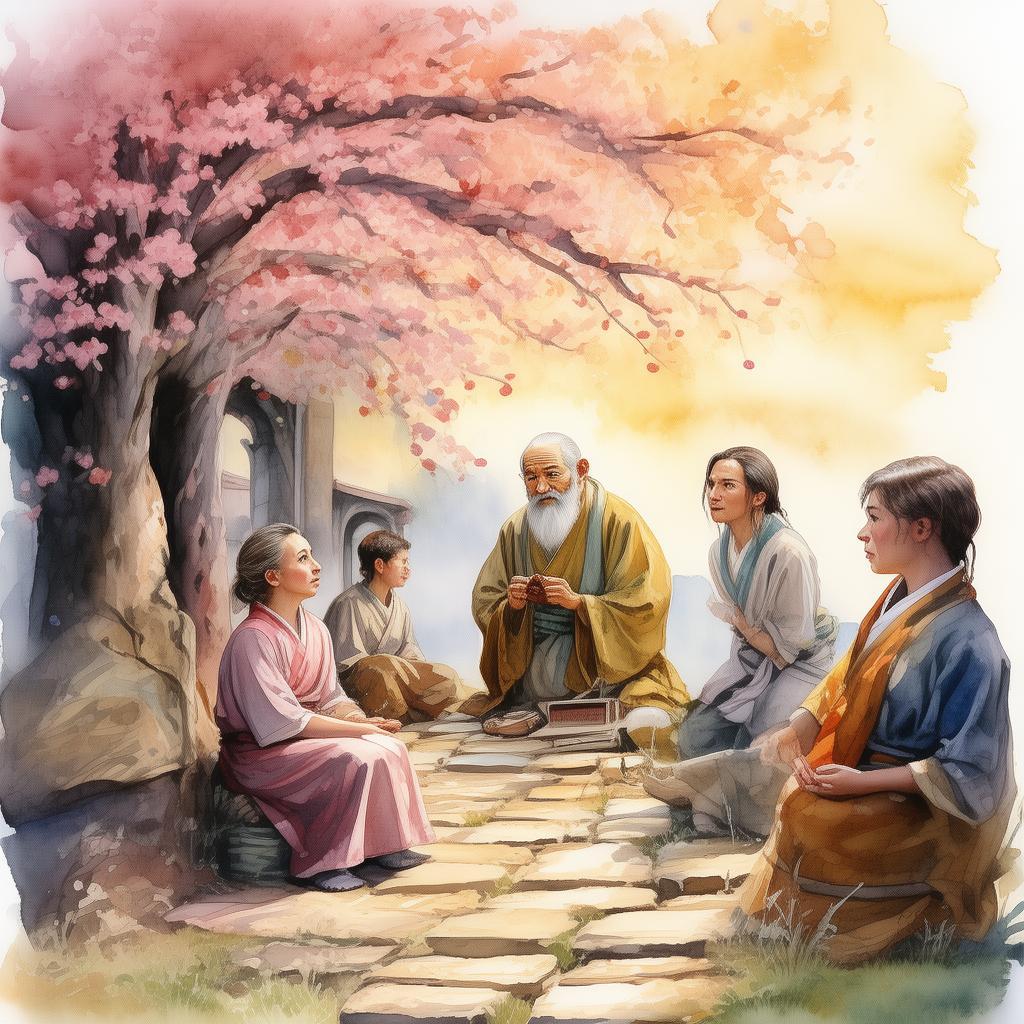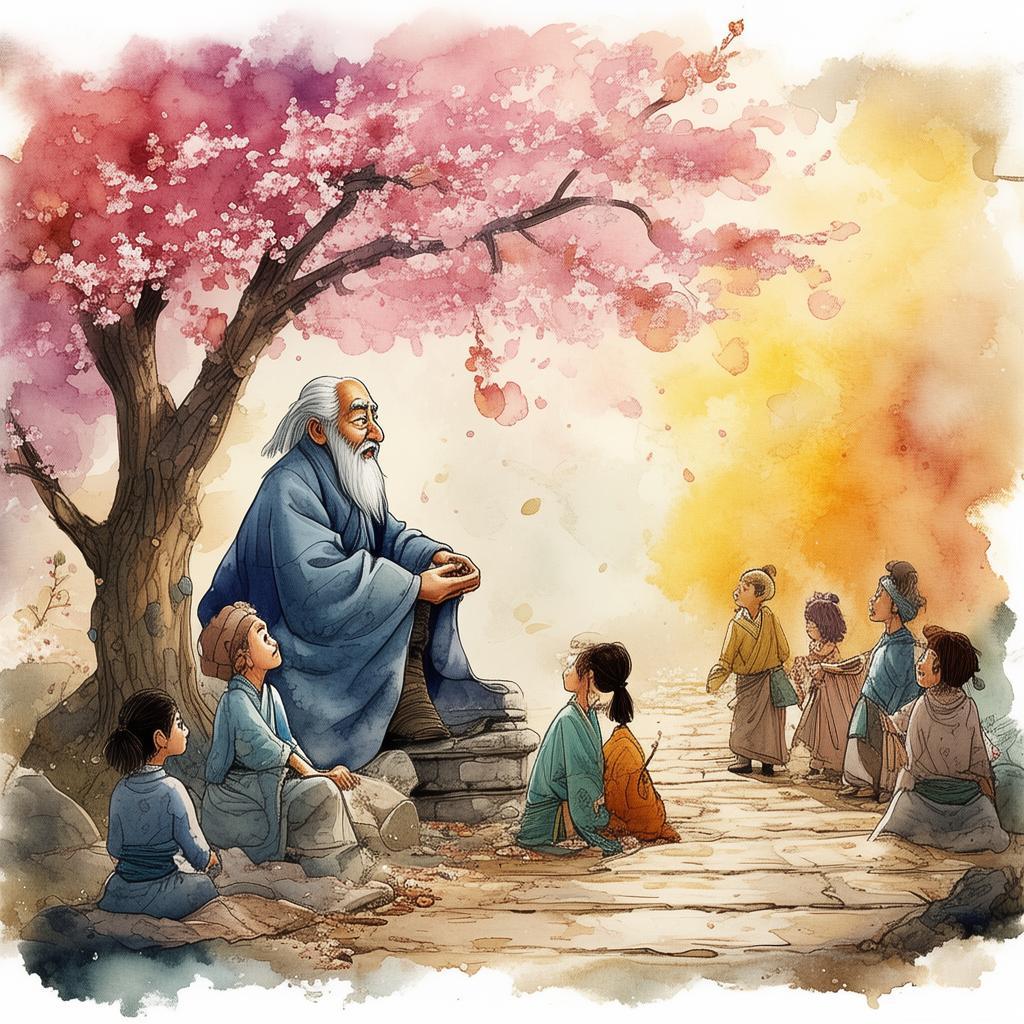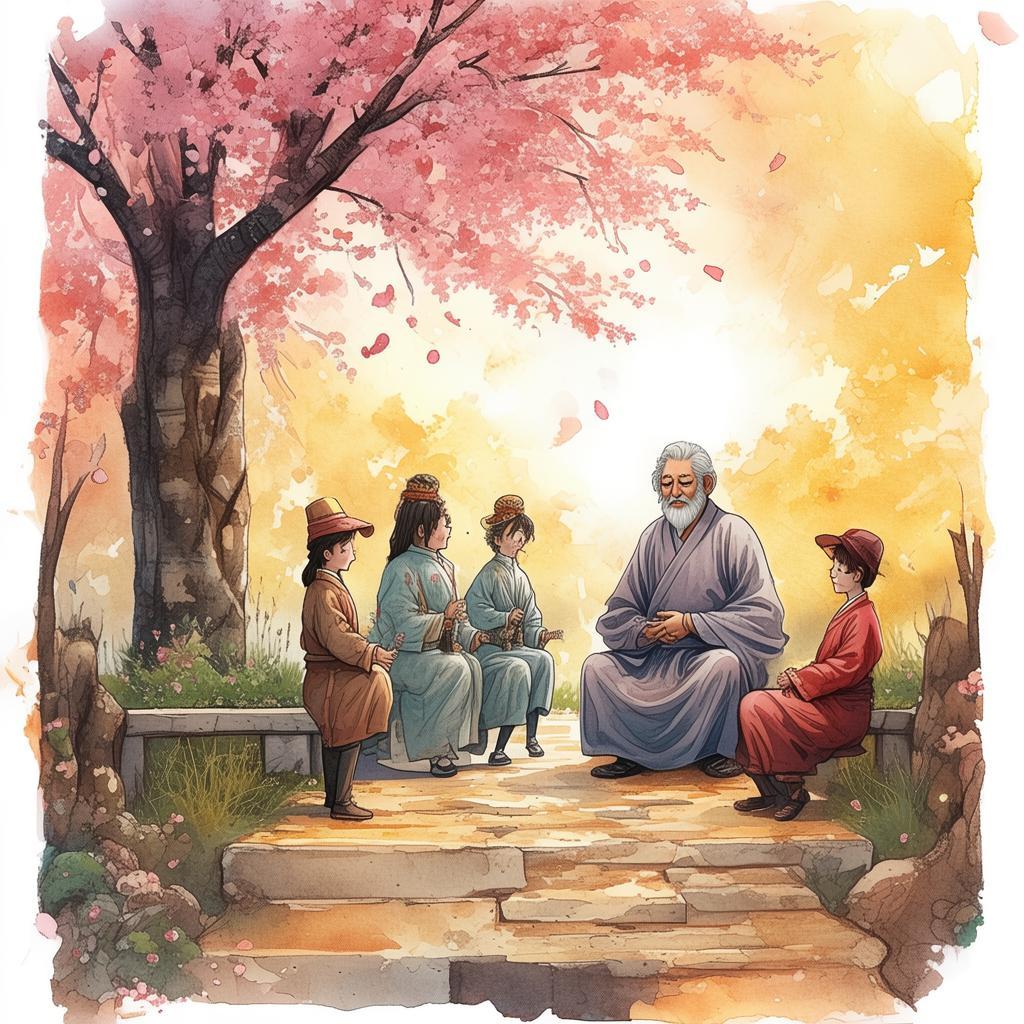The Compassionate Conductor: Symphony of the Dead
In the heart of the ancient city of Elysium, there stood an old, decrepit concert hall. It was said that the hall was built upon the resting place of the city's ancestors, and for centuries, it had been abandoned, its acoustics a whisper of the past. But one man, a conductor named Aria, had a vision. He believed that music could be the key to unlocking the secrets of the dead, to bring them back to life for one final performance.
Aria was no ordinary conductor; he was a compassionate soul with a heart that beat to the rhythm of the cosmos. He had a rare gift, a gift that allowed him to hear the voices of the departed, to feel their pain and joy through the melodies they left behind. It was this gift that led him to the old concert hall, where he found an ancient manuscript that spoke of a symphony written by the dead themselves.
The manuscript was a cryptic scroll, filled with symbols and musical notes that seemed to dance before Aria's eyes. It spoke of a symphony composed by the spirits of the departed, a symphony that would bring them back to life for one night, to perform the music they had cherished in life. But there was a catch; the symphony could only be performed if Aria could decipher the code within the scroll and summon the spirits with pure intent and compassion.
Determined to bring the dead back to life, Aria began his journey. He traveled to the homes of the departed, seeking out their loved ones, listening to their stories, and learning about the lives they had lived. He discovered that each spirit had a story, a tale of love, loss, and redemption. He learned of a soldier who had died in battle, leaving behind a wife and a child; of a painter who had given up her art to care for her aging parents; of a young girl who had been betrayed by those she trusted most.
As Aria delved deeper into the pasts of these spirits, he realized that their lives were intertwined in a complex web of sin and redemption. Each spirit had made choices that had led to their deaths, choices that had either saved or destroyed others. Aria knew that to bring them back, he must understand their stories, forgive their mistakes, and offer them a chance at redemption.
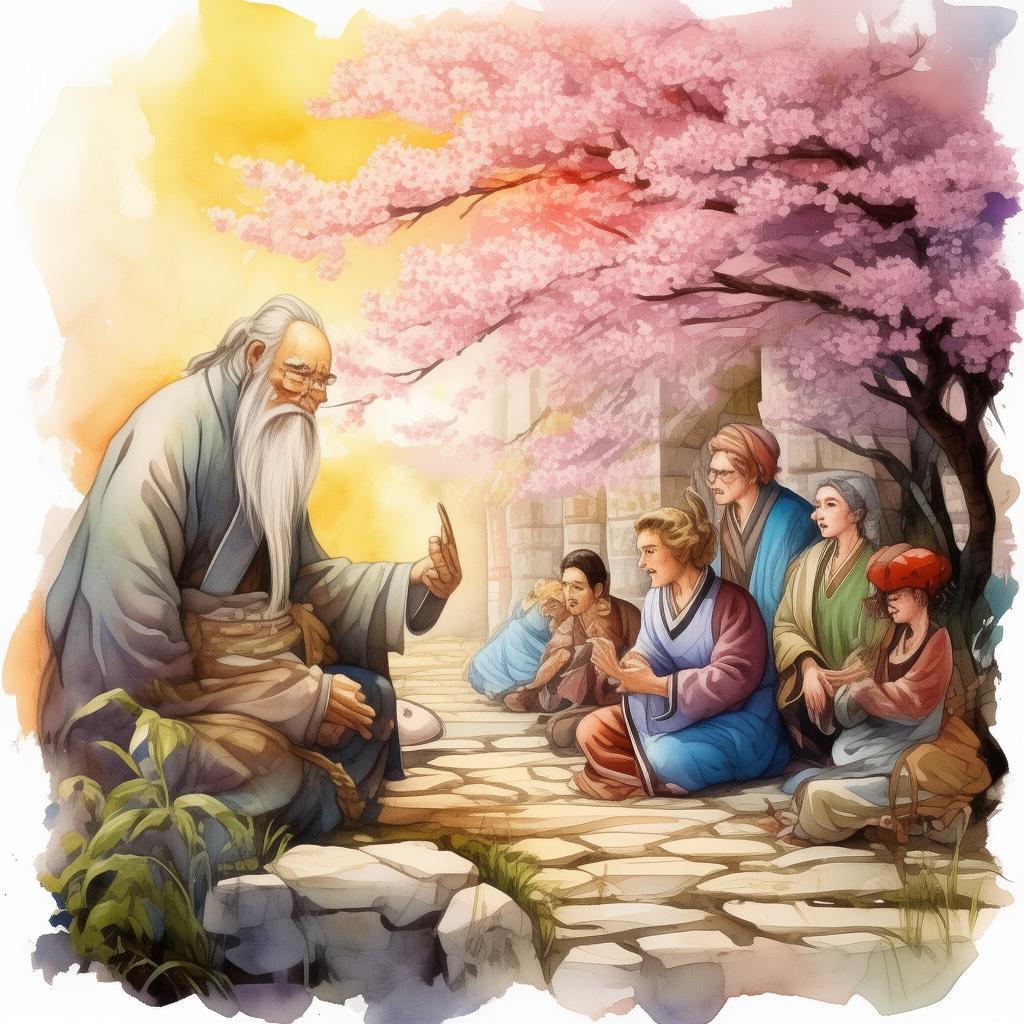
With each new story, Aria's heart grew heavier. He felt the weight of the spirits' burdens, the weight of their regrets. But he also felt a profound sense of purpose, a sense that he was doing something truly meaningful. He began to compose a symphony, a symphony that would tell the stories of the dead, a symphony that would honor their lives and their legacies.
As the night of the performance drew near, Aria felt a growing sense of urgency. He needed to complete the symphony, to bring the spirits back to life. He worked through the night, his fingers dancing across the piano keys, his heart singing the melodies of the departed. In the end, the symphony was a masterpiece, a testament to the power of love, forgiveness, and redemption.
On the night of the performance, the old concert hall was filled with the living and the dead. The spirits of the departed had been summoned, and they stood before Aria, their faces alight with curiosity and hope. As the symphony began, the hall was transformed into a place of wonder and reverence. The music was a healing balm, a bridge between life and death, a reminder that even in the face of loss, there is always hope.
As the final note of the symphony echoed through the hall, the spirits of the departed faded away, leaving behind a sense of peace and fulfillment. Aria knew that he had done something extraordinary, that he had brought the dead back to life, if only for one night. But more importantly, he had given them a chance at redemption, a chance to be remembered for who they were, not just for who they had become.
The Compassionate Conductor had achieved his vision, but the true legacy of the Symphony of the Dead would be felt for generations to come. It was a story of love, loss, and redemption, a story that would inspire others to look beyond the surface of life and death, to see the beauty and complexity of the human spirit.
✨ Original Statement ✨
All articles published on this website (including but not limited to text, images, videos, and other content) are original or authorized for reposting and are protected by relevant laws. Without the explicit written permission of this website, no individual or organization may copy, modify, repost, or use the content for commercial purposes.
If you need to quote or cooperate, please contact this site for authorization. We reserve the right to pursue legal responsibility for any unauthorized use.
Hereby declared.
